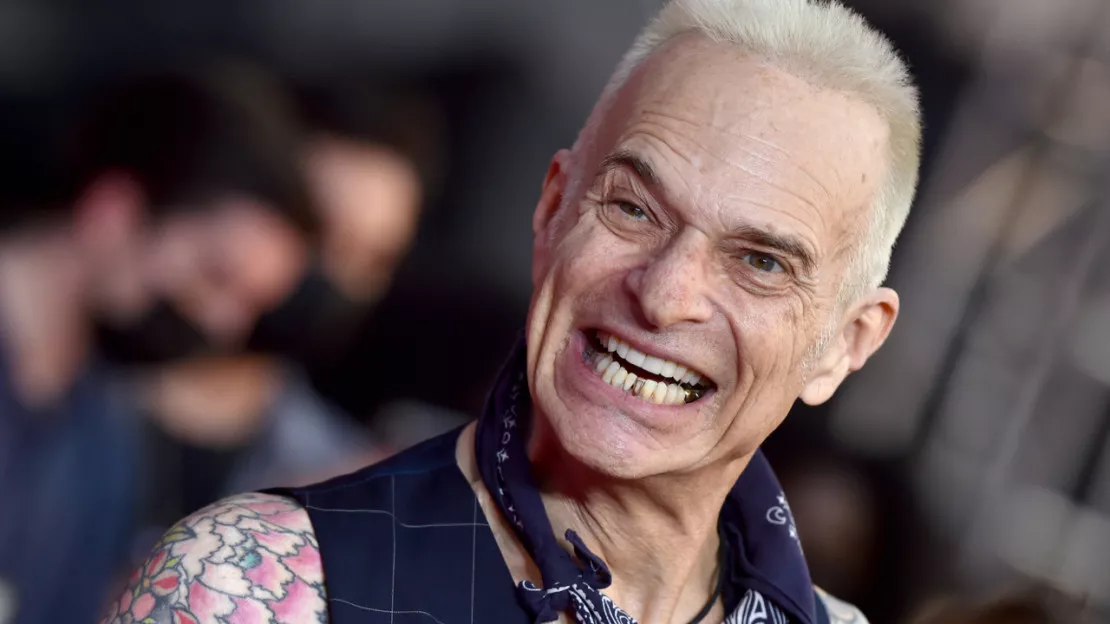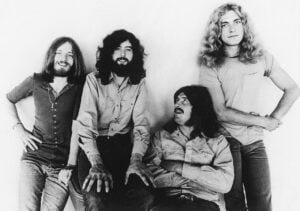5 Rockstars And Their Humble and Unexpected Jobs Before Fame

Many rock musicians were ordinary folks pursuing their aspirations while working day jobs before they became famous. They worked hard to make ends meet while finding time to compose, practice, and perform—from moving hotel bags to excavating graves. Their stories and journeys were shaped by these unforeseen gigs. These five unexpected occupations were held by rock stars both before and after their ascent to popularity, like in the case of David Lee Roth.
Tony Iommi – Sheet Metal Factory Worker
Tony Iommi earned a living at a sheet metal foundry before creating iconic riffs with Black Sabbath, such as “Iron Man” and “Into the Void.” He severed his fingertips in a life-altering accident while using a metal flattening machine on his last day of work.
Initially heartbroken, especially with a tour coming up, he changed the way he played by adopting a slower, heavier approach and simpler chords. This distinctive sound served as the basis for Black Sabbath’s gloomy, sludgy sound, influencing heavy metal’s future and motivating innumerable musicians in the process.

Keith Richards – Tennis Ball Boy
Rolling Stones guitarist Keith Richards seems worlds apart from the polished tennis club scene. But before his rise to rock stardom, he spent his weekends as a volunteer tennis ball boy for his parents. In his “Ask Keith” series, Richards shared, “I was dragged every weekend to the court as their ball boy, so I got to know the ins and outs.”
He elaborated further in his memoir, Life: “Their big thing, my parents, was Saturday and Sunday at the Bexley tennis club. Unless it was p***ing with rain, every weekend that was in—straight to the tennis club. My job was to pick up the balls that went over the railway line at the cost of nearly getting electrocuted.” Perhaps this early job prepared him for his electrifying moments in rock ‘n’ roll history.

David Lee Roth – EMT
While many rockstars leave their day jobs far behind after hitting the big time, Van Halen frontman David Lee Roth found a new calling long after his band’s peak. In the early 2000s, Roth became a state-licensed emergency medical technician (EMT) in New York. “I probably have over 200 911 calls on my ticket in the last six years alone,” he shared with The Guardian in 2012.
“I’ve always used my celebrity as a passport for travel and ‘let’s go get into it,’” Roth explained to CBS Sunday Morning. But this gig wasn’t about fame. “I wasn’t someone until I put on that 5.11 uniform and went on my first call,” Roth said, proving his commitment to the job.

Stevie Nicks – House Cleaner and Waitress
Before joining Fleetwood Mac, Stevie Nicks and Lindsey Buckingham were struggling musicians trying to break into the 1970s California music scene. While Buckingham stayed home honing his guitar skills, Nicks took on multiple jobs to support them. She worked as a waitress, sometimes juggling shifts at more than one restaurant, and cleaned houses on the side to make ends meet.
“I didn’t want to be a waitress,” Nicks admitted in a 1997 interview. “But I believed Lindsey shouldn’t have to work. He should just lay on the floor and practice his guitar and become more brilliant every day.” Watching him improve gave her a sense of purpose, even if it meant setting her own ambitions aside.

Jack White – Upholstery Apprentice
Before Jack White became a celebrated musician and co-founder of the White Stripes, he began his career in an unexpected place—an upholstery workshop in Detroit. In the early 1990s, he apprenticed under Brian Muldoon, learning the craft while pursuing music on the side. By 1996, White opened his own upholstery business, naming it Third Man Upholstery after the classic 1949 film The Third Man and because he was the third upholsterer in that Detroit neighborhood.
White and Muldoon even formed a band called The Upholsters, blending their trade with their passion for music. On the 25th anniversary of Muldoon’s shop, they pressed 100 vinyl records and hid them in furniture foam. “We went to great lengths to make sure possibly no one would ever hear our record, but it’s there,” White told NPR.












